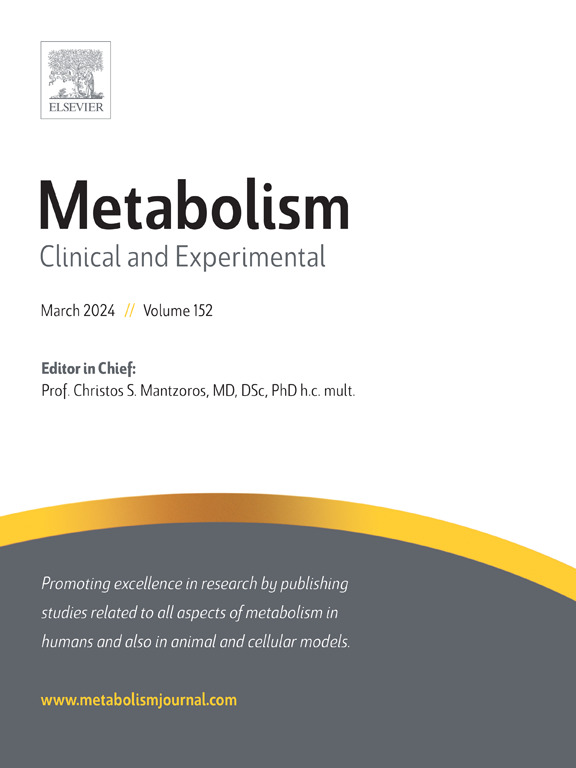癌症中的羧酸代谢:机制、微环境相互作用和治疗机会
IF 11.9
1区 医学
Q1 ENDOCRINOLOGY & METABOLISM
引用次数: 0
摘要
癌细胞重新编程其代谢,以支持有氧糖酵解和增强羧酸代谢,支持其能量需求并促进肿瘤进展。本文综述了羧酸,如乳酸,脂肪酸和氨基酸在癌症中的作用,通过四个关键途径:(1)乳酸介导的肿瘤微环境酸化和免疫抑制,(2)脂肪酸代谢驱动肿瘤发生,(3)氨基酸调节癌细胞存活,以及(4)这些代谢网络之间的相互作用。这些途径通过调节关键酶、转运体和信号传导机制促进免疫逃避、增殖和耐药。尽管具有治疗潜力,但由于肿瘤的适应性和代谢异质性,靶向羧酸代谢仍然具有挑战性。未来的研究方向包括开发异构体特异性抑制剂、联合疗法和基于代谢谱的精准医学方法。了解这些相互联系的途径可能会揭示创新癌症治疗的新弱点。本文章由计算机程序翻译,如有差异,请以英文原文为准。

Carboxylic acid metabolism in cancer: Mechanisms, microenvironment interactions, and therapeutic opportunities
Cancer cells reprogram their metabolism to favor aerobic glycolysis and enhance carboxylic acid metabolism, supporting their energy needs and promoting tumor progression. This review explores the role of carboxylic acids, such as lactate, fatty acids, and amino acids, in cancer through four key pathways: (1) lactate-mediated tumor microenvironment acidification and immune suppression, (2) fatty acid metabolism driving tumorigenesis, (3) amino acid regulation of cancer cell survival, and (4) the crosstalk between these metabolic networks. These pathways contribute to immune evasion, proliferation, and drug resistance by modulating key enzymes, transporters, and signaling mechanisms. Despite their therapeutic potential, targeting carboxylic acid metabolism remains challenging owing to tumor adaptability and metabolic heterogeneity. Future research directions include the development of isoform-specific inhibitors, combination therapies, and precision medicine approaches based on metabolic profiling. Understanding these interconnected pathways may reveal new vulnerabilities for innovative cancer treatments.
求助全文
通过发布文献求助,成功后即可免费获取论文全文。
去求助
来源期刊

Metabolism: clinical and experimental
医学-内分泌学与代谢
CiteScore
18.90
自引率
3.10%
发文量
310
审稿时长
16 days
期刊介绍:
Metabolism upholds research excellence by disseminating high-quality original research, reviews, editorials, and commentaries covering all facets of human metabolism.
Consideration for publication in Metabolism extends to studies in humans, animal, and cellular models, with a particular emphasis on work demonstrating strong translational potential.
The journal addresses a range of topics, including:
- Energy Expenditure and Obesity
- Metabolic Syndrome, Prediabetes, and Diabetes
- Nutrition, Exercise, and the Environment
- Genetics and Genomics, Proteomics, and Metabolomics
- Carbohydrate, Lipid, and Protein Metabolism
- Endocrinology and Hypertension
- Mineral and Bone Metabolism
- Cardiovascular Diseases and Malignancies
- Inflammation in metabolism and immunometabolism
 求助内容:
求助内容: 应助结果提醒方式:
应助结果提醒方式:


